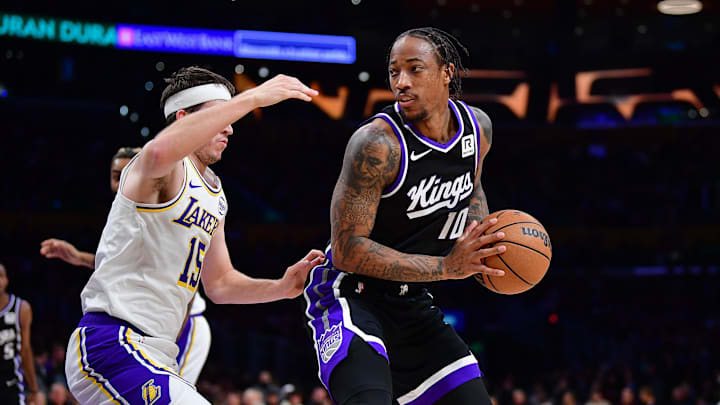The Sacramento Kings have been the epitome of disappointment this season. In a year where they hoped to make a run in the Western Conference, the Kings have started their first 32 games 13-19 and 12th in the Western Conference.
On Friday, the team dismissed their head coach, Mike Brown, six months after signing him to an extension. The move signaled that the front office was casting the blame for the slow start on him.However, one could argue that this offseason
The DeMar DeRozan signing has not gone how the Kings had hoped
In early July, when the Kings pulled off a sign-and-trade to land six-time All-Star DeMar DeRozan, the vibes around the team were at an all-time.
And how could they not be? Even at 35, DeRozan still looked like a highly productive player, performing like a borderline top 50 player in the league in 2023-24. Adding a player like that for Harrison Barnes (the team's worst starter), salary filler, and a distant pick swap seemed like a major win. On top of that, it signaled one of the few times (if not the only time) that a star had chosen Sacramento over more glamorous markets.
However, hindsight is 20/20, and unfortunately for the Kings, the DeRozan signing is what created the roster imbalance the team is currently dealing with.
DeRozan is still a good player (averaging 20.9 PPG on 57.1% true shooting), but the Kings already have strong creators who can't space the floor in De'Aaron Fox, Domantas Sabonis, and Malik Monk (Monk can kind of space the floor, but you get the point).
What the team needed was wings/forwards who can space the floor, attack closeouts, defend the perimeter, create steals, and offer secondary rim protection. Not only did DeRozan take up a roster space and cap space that could be used toward this pursuit, but he also cost the team one of the only competent forwards (Barnes) they had on their roster.
One could argue that the Kings front office could always walk back this decision by trading DeRozan for the pieces they need. However, as the Kings learned, that's a hard thing to do because more teams are looking for high level role player wings/forwards than they are for son-ball players like DeRozan.
The Kings' front office put Brown at a disadvantage by prioritizing talent and prestige over fit. Yet, Brown was the one who had to pay the price for it. That doesn't seem very fair, but such is the life of an NBA coach.
